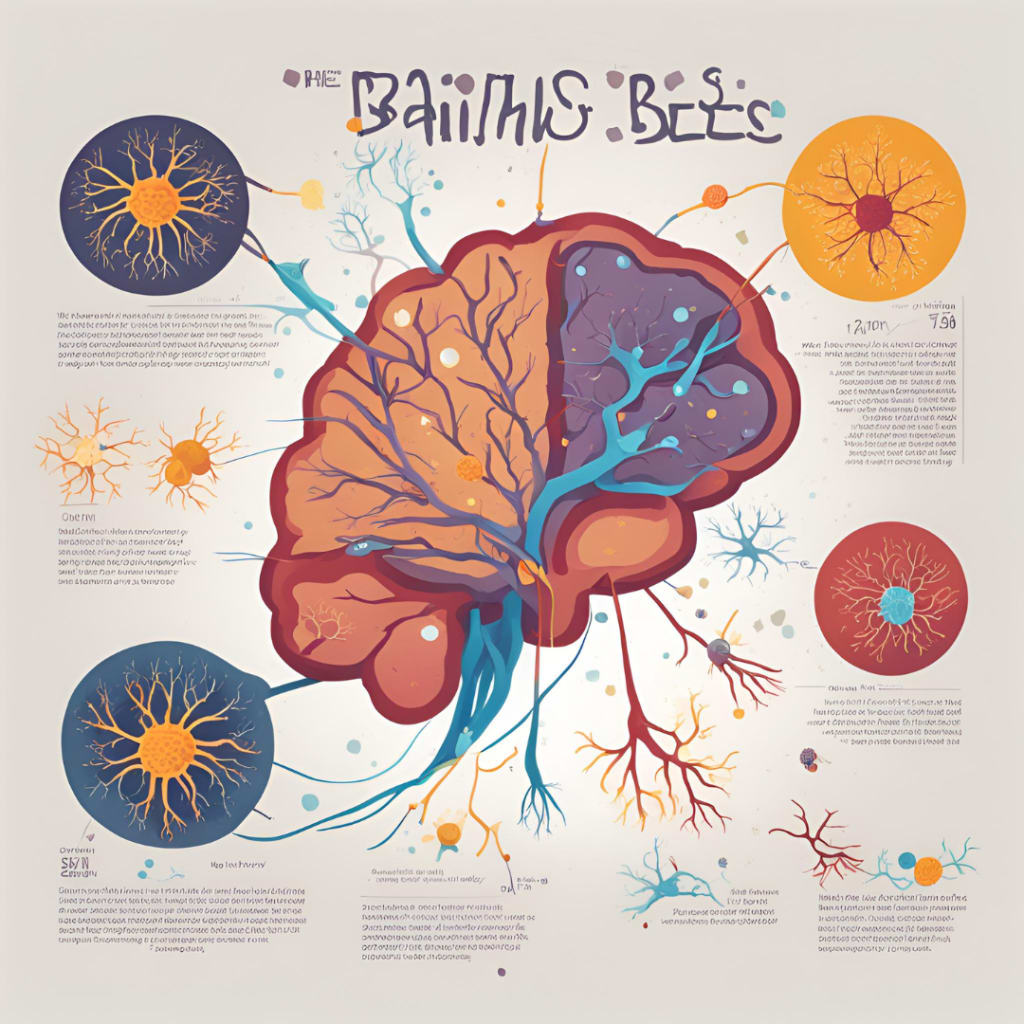Demystifying the Mastermind: Unveiling the Cells That Power Your Thoughts, Movements, and Memories
A Deep Dive into Neurons, Glial Cells, and the Symphony of Communication Within Your Brain

Demystifying the Mastermind: Unveiling the Cells That Power Your Thoughts, Movements, and Memories
The human brain, a three-pound marvel encased in our skull, is the most complex organ on Earth. Throughout history, its purpose and importance have been a source of fascination and debate. Today, neuroscience unveils the intricate workings of this control center, allowing us to appreciate the cellular symphony that underlies every thought, movement, and memory.
Fueling the Powerhouse: The Brain's Energetic Demands
Despite its relatively small size, the brain is a demanding organ when it comes to energy consumption. Astonishingly, it gobbles up roughly 20% of the blood and oxygen your heart pumps and lungs supply, respectively. This continuous flow is essential to nourish the billions of cells within the brain, allowing them to perform their specialized functions seamlessly.
The Key Players: Neurons and Glial Cells
To understand how the brain operates, we must delve into the two main cell types that orchestrate its complex symphony: neurons and glial cells.
Neurons: The Messengers of the Mind
Neurons, the stars of the brain show, are specialized cells responsible for communication. Billions of them reside within your brain and spinal cord, constantly sending and receiving messages through a network of intricate connections. Imagine a neuron as a tree - the cell body serves as the trunk, while the numerous branching extensions are its arms. These arms, called dendrites (receiving) and axons (transmitting), act as communication channels, allowing neurons to interact with each other and relay signals to various parts of the body.
Neurons come in various shapes and sizes, reflecting their diverse functions. They utilize electrical and chemical signals to communicate, forming a vast network that coordinates everything from simple reflexes to complex thought processes. When neurons are injured or damaged, these crucial signals can be disrupted, potentially leading to issues with muscle function, memory, or speech, depending on the location of the damage.
Glial Cells: The Unsung Heroes of the Brain
While neurons often receive the limelight, glial cells are the unsung heroes of the brain, playing a vital support role. Outnumbering neurons by a staggering 10 to 1, these dedicated cells provide essential assistance in various ways:
Supporting Signal Transmission: Glial cells help neurons by insulating their axons with a fatty sheath called myelin. This sheath acts like insulation on an electrical wire, ensuring that signals travel efficiently and without loss.
Maintaining a Clean Environment: Glial cells act as the brain's sanitation crew, clearing away debris and waste products generated by neuronal activity. This ensures a clean and healthy environment for optimal brain function.
Providing Nourishment: Glial cells assist in delivering nutrients and oxygen to neurons, ensuring they have the fuel they need to function properly.
Responding to Injury: Glial cells play a crucial role in responding to injury in the brain. However, prolonged activation of these cells can lead to neuroinflammation, a chronic inflammatory state associated with various neurological disorders.
The Future of Brain Research: Unveiling the Mysteries
Although significant progress has been made in understanding the brain, much remains shrouded in mystery. Further research on the diverse types of neurons and glial cells, as well as their interactions, is crucial for unlocking the secrets of healthy brain aging, injury repair, and disease prevention. With deeper insights into how these cellular players communicate and function, scientists can develop better treatments and therapies for a wide range of neurological disorders, impacting millions of people worldwide. From migraines to devastating conditions like Alzheimer's disease and traumatic brain injury, the potential of brain research is immense.
In conclusion, the human brain is a masterpiece of evolution, a marvel of interconnected cells working in concert to produce our thoughts, actions, and memories. Understanding the crucial roles played by neurons and glial cells allows us to appreciate the intricate dance that governs our every move, thought, and feeling. As research continues to unveil the brain's secrets, we move closer to developing therapies that can protect, repair, and enhance this remarkable organ, paving the way for a future filled with improved treatments for neurological disorders.
About the Creator
suren arju
Hi there! I'm Suren, your startup guide. Entrepreneur, writer, dreamer - I share insights, tips & stories to fuel your startup journey. Ready to explore, learn & win together? Join me & let's redefine how we launch, learn & leap!
Enjoyed the story? Support the Creator.
Subscribe for free to receive all their stories in your feed. You could also pledge your support or give them a one-off tip, letting them know you appreciate their work.





Comments
There are no comments for this story
Be the first to respond and start the conversation.